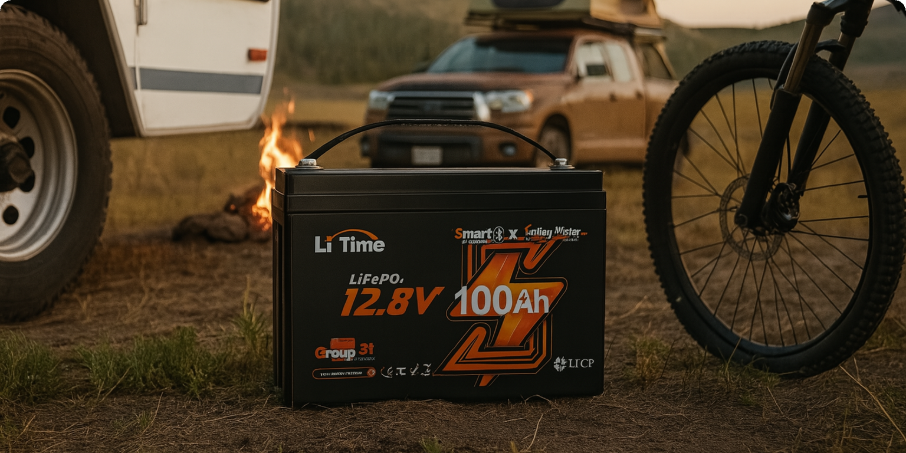Join LiTime Membership to Unlock Exclusive Benefits
Get 5% OFF Discount & 300 LiPoints for first registration.
Join Now
Back
Login to LiTime
Quick Login
By logging in, you agree to LiTime's Privacy Policy and Terms of Use
Create a LiTime Account
Quick Login
By logging in, you agree to LiTime's Privacy Policy and Terms of Use
Forgot your Password?
No worries! We'll send you an email to help you reset your password.
Change your password.
Your data is protected
LiTime accounts have been upgraded. For the security of your account, please update your password.
Now you can log into the website and the LiTime app with the same account.
Reset Your Password
Verify your email address.
Enter the verification code sent to {{ email }}. If you didn’t receive it, please check the spam or junk folder.
Didn't receive the code? Get help.
We have sent you an email
A password reset link has been sent to {{ email }}. Please check your email and follow the instructions to reset your password.
Please check the spam or junk folder if you didn't receive it.Didn't receive the email?
Set Your Password
This invitation link has expired,
Please contact customer support for a new one.
LiTime detected that you're logged in to [$site$ site] with []. Would you like to continue?
Shop
- New Arrivals
- 12V 100Ah Batteries
- Bluetooth Batteries
- ComFlex Batteries
- 12V LiFePO4 Batteries
- 16V LiFePO4 Battery
- 24V LiFePO4 Batteries
- 36V LiFePO4 Batteries
- 48V LiFePO4 Batteries
- Ultra Fast AC-DC Chargers
- DC-DC Chargers
- Inverters
- Solar Charge Controllers
- Battery Accessories
- Like New Batteries
- Refurbished Batteries
-
Classic
-
Bluetooth
-
Low-Temp
-
Self-Heating
-
2C-Rate
Function Selection
-
2C-Rate
-
ComFlex
-
Starting
-
Low-Temp
-
Bluetooth
-
Self-Heating
Function Selection
-
ComFlex
-
2C-Rate
-
Low-Temp
-
Bluetooth
Function Selection
-
Classic
-
Starting
-
Low-Temp
-
Bluetooth
-
Self-Heating
-
2C-Rate
Function Selection
-
Bluetooth
-
Low-Temp
-
Self-Heating
Function Selection
-
Classic
-
Low-Temp
-
Bluetooth
-
2C-Rate
Function Selection
-
Low-Temp
-
Bluetooth
-
2C-Rate
Function Selection
-
Classic
-
Low-Temp
-
Bluetooth
-
2C-Rate
-
ComFlex
Function Selection
-
Waterproof
-
Multi-Bank
Function Selection
-
Bluetooth
-
Waterproof
Function Selection
-
Classic
-
Low-Temp
-
Bluetooth
-
Self-Heating
-
Starting
-
2C-Rate
Function Selection
🔧Labor Day
Applications
Support
Explore
Program
Discounts
Partnerships
About LiTime
B2B Solutions Hub
Country/Region
LiTime detected that you're logged in to [$site$ site] with []. Would you like to continue?
Yes, log in with this account.
No, sign up with a new email.
Recommended Results
1
RV Batteries
2
Trolling Motor Batteries
3
Golf Cart Batteries
4
Marine Batteries
5
Off-Grid Batteries
6
Home Backup Power Batteries
7
Starting/Cranking Batteries
8
Bluetooth Batteries
9
12V 100Ah Battery
Sorry, no matching results found.
Try searching again or contact our Customer Service.
Product Results
View All
Preons for 12V RV
Preons for 12V RV
Preons for 12V RV
Preons for 12V RV
Preons for 12V RV
Blog Results
View All
Preons for 12V RV
Preons for 12V RV
Preons for 12V RV
Preons for 12V RV
Preons for 12V RV






























































































































.webp)







